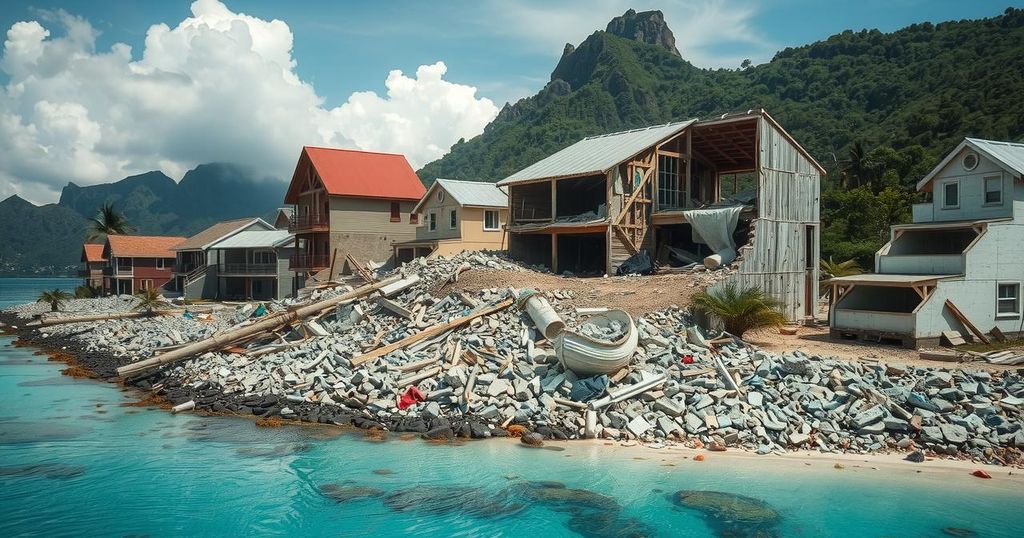World news
AL - JAMARAT, AMERICA, ASIA, BUSH SR, CIA, CONGRESS, DISPLACEMENT, GEORGE HW BUSH, GOVERNMENT RESPONSE, HAITI, HUSSEIN, KUWAIT, NATURAL DISASTER, NATURAL DISASTERS, NORTH AMERICA, OR, PORT - AU - PRINCE, RAKE, SADDAM HUSSEIN, UNION OF INDIA, US CONGRESS, WORLD NEWS
Sofia Rodriguez
0 Comments
Notable Historical Events on January 12: From Earthquakes to Political Decisions
January 12 has been marked by several significant historical events, including the 2010 Haiti earthquake that claimed over 300,000 lives, the U.S. Congress’s authorization of military action against Iraq in 1991, a tragic stampede during Hajj in Saudi Arabia in 2006, and the Supreme Court of India’s stay on controversial farm laws in 2021, reflecting the date’s profound impact on global history.
On January 12, significant historical events resonate profoundly across eras. Notably, in 2010, Haiti was struck by a calamitous earthquake that resulted in over 300,000 fatalities, compounded by widespread destruction in the capital, Port-au-Prince. This disaster adversely affected approximately three million individuals, forcing over one million into homelessness, leaving a long-term impact on the nation that remains evident today.
This date also marks pivotal moments in U.S. politics. In 1991, Congress authorized President George H.W. Bush to deploy military action against Iraq after its invasion of Kuwait, leading to a swift and extensive conflict that would alter Middle Eastern geopolitics. The decision, reached with a vote tally of 250 to 183, set in motion a military operation that was unprecedented in its real-time broadcast to American audiences.
Additionally, the day is associated with a tragic incident during the Hajj pilgrimage in 2006, where over 300 individuals lost their lives during the Mina stoning ritual due to a stampede caused by factors beyond the control of safety measures in place. Despite extensive preparations, the unfortunate occurrences illustrate the challenges of managing large crowds during religious observances.
In more contemporary context, January 12, 2021, saw the Supreme Court of India suspending three controversial farm laws enacted the previous year that faced widespread opposition from farmers. Chief Justice SA Bobde emphasized the need for dialogue through a committee to address the concerns of the agricultural community, which eventually led to the repeal of the laws by the Prime Minister later that year.
Lastly, historical milestones also include the birth of Swami Vivekananda in 1863 and significant events such as the induction of Bangladesh’s President Abu Sayeed Chowdhury in 1972. These reflections on January 12 reveal a tapestry of human experiences shaped by tragedy, determination, and transformational change.
Understanding the events of January 12 across various years illustrates the significance of this date in global history. A closer examination reveals the far-reaching effects of the 2010 Haiti earthquake, a moment that shaped international disaster response and recovery efforts, while it also sheds light on critical political decisions in the U.S. that impacted foreign relations. Furthermore, events like the Mina tragedy during the Hajj pilgrimage highlight the intricate dynamics of large-scale religious observances and safety measures. The recent legal developments in India serve as a reminder of the ongoing struggle for farmers’ rights amid changing agricultural policies.
January 12 serves as a reflective anchor to numerous key historical events that highlight humanity’s resilience amidst adversity, the weight of political decisions, and the necessity for continued dialogue on socio-economic issues. The tragedies and triumphs associated with this date emphasize the importance of learning from history to foster a better future.
Original Source: www.firstpost.com




Post Comment